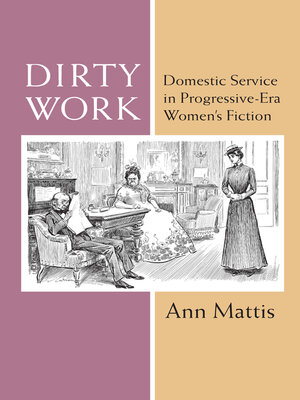Dirty Work
ebook ∣ Domestic Service in Progressive-Era Women's Fiction · Class : Culture
By Ann Mattis

Sign up to save your library
With an OverDrive account, you can save your favorite libraries for at-a-glance information about availability. Find out more about OverDrive accounts.
Find this title in Libby, the library reading app by OverDrive.



Search for a digital library with this title
Title found at these libraries:
| Library Name | Distance |
|---|---|
| Loading... |
Dirty Work sheds light on the complex relationships between women employers and their household help in the early twentieth century through their representations in literature, including women's magazines, conduct manuals, and particularly female-authored fiction. Domestic service brought together women from different classes, races, and ethnicities, and with it, a degree of social anxiety as upwardly mobile young women struggled to construct their identities in a changing world. The book focuses on the works of Charlotte Perkins Gilman, Edith Wharton, Gertrude Stein, Nella Larsen, Jessie Fauset, Anzia Yezierska, and Fannie Hurst and their various depictions of the maid/mistress relationship, revealing "a feminized and racialized brand of class hegemony." Modern servants became configured as racial, hygienic, and social threats to the emergent ideal of the nuclear family, and played critical rhetorical roles in first-wave feminism and the New Negro movements. Ann Mattis reveals how U.S. domestic service was the political unconscious of cultural narratives that attempted to define modern domesticity and progressive femininity in monolithic terms.







